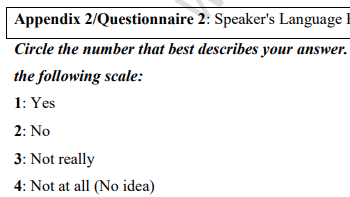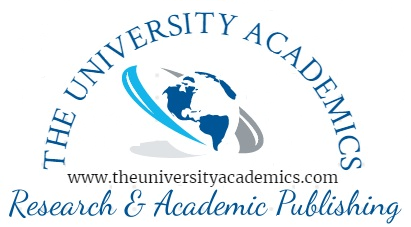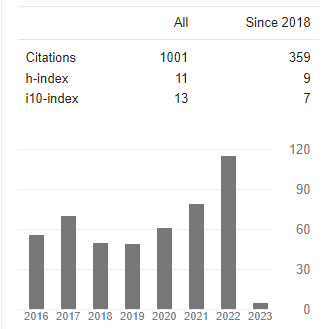Investigating Language Diversity and Language Evolution in Algeria: The case of Biskra region
Abstract
The most important cases of language contact in Africa are those which came about as the result of European colonization. Long before the European colonial expansion, the North of the continent witnessed Roman, Ottoman, and Arab movements of settlement and immigration which led to varying linguistic compromise for the purposes of trade, barter and exchange. All of these occasions contributed to the creation of new communities in which the colonial languages came closer to the indigenous languages of the colonized. In extreme cases such as the Big Maghreb, contact led to the emergence of Creoles and indigenized languages. The best example of these is Algerian Arabic (AA) which is a blend of Berber, Roman, Arabic, Turkish and European vocabulary with unchanging grammatical rules of Classical Arabic. Our enquiry in this study is to uncover the reality of what we practically speak in Algeria as language (s), especially in the region of Biskra, and the position of the latter among the other languages in the country. We then intend to justify the community's linguistic needs and aspirations in terms of history, religion, politics, and the present rush to globalization. The results revealed that Algerian Arabic is the major means of communication and unity in Algeria though there are many language backgrounds. They also revealed that Arabic and Tamazight could preserve their status despite the influence of several other languages such as Roman, Spanish, Ottoman and French. The participants justified their choice of English by their legitimate need for more opportunities and openness to the world.
Downloads
References
Benrabah, M. (2007). Language in education planning in Algeria: Historical development and
current issues. Language Policy, 6, 225-252.
Berrabah, B. (1999). Post independence Algerian linguistic policy: Current issues. Language
Planning, 4, 379-502.
Blaxter, L., Hughes, C., & Malcolm, T. (Eds). (2006). How to research. (3rd ed).
Berkshire: Open University Press.
Bradburn, N. M, Brian Wansink, and Seymour Sudman. (2004). Asking questions: The
definitive guide to questionnaire design—for market research, political polls, and social
and healthquestionnaires. San Francisco: Jossey-Bass
Brown, H. D. (2002). Strategies for Success: A Practical Guide to Learning English. New
York: Pearson Education.
Cohen, L., Manion, L. & Morrison, K. (2005). Research methods in education. (5thed).
London :Routledge.
Cook, I. (2003). Applied linguistics. Oxford: Oxford University Press.
Coolican, H. (1994). Research methods and statistics in psychology. (2nd ed). n.p: Hodder
& Stoughton.
Dornyei, S. (2003). Questionnaires in second language research: Construction,
administration, and processing. London: Lawrence Erlbaum Associates.
Grandguillaune, G. (2004). L'arabisation au Magreb: Revue d'Aménagament Linguistique,
,15-19.
Hayane, O. (1989). L'Enseignement de la langue Anglaise en Algérie depuis 1962. Algiers:
Office des Publications Universitaires.
Hsieh, P. T. J. (2010). The impact of globalization on foreign language education policy in
Taiwan- Policy Initiatives and Industrial Demand. International Journal of Education and
Psychological Assessment, 5, 237-244.
Sebti, N. (2001). Rapport de la Commission des propositions et échéances.Liberté, 20 March.
http://www.Liberté-algérie.com.
Vermerren, P. (2009). The North American educational challenge: From observation to the
current alleged islamist threat. Mediterranean Journal of Educational Studies, 14, 49-64.
Abdalkareem Jasim S, Singh M, Al-Dhalimy AMB, Zwamel AH, Jawad IA, Shalaby NS. The Impact of Chronic Exercise on Cognitive Function: An Overview of Reviews. Iran J Psychiatry. 2024;19(4):463-472. https://ijps.tums.ac.ir/index.php/ijps/article/view/3895
Yasmin Basheer Ahmed, Saade Abdalkareem Jasim, Yasser Fakri Mustafa, Beneen Husseen, Thoraya Mahbas Diwan, Mandeep Singh, The effects of propolis supplementation on lipid profiles in adults with metabolic syndrome and related disorders: A systematic review and meta-analysis of randomized controlled trials, Human Nutrition & Metabolism,Volume 37,2024,200276,ISSN 26661497,https://doi.org/10.1016/j.hnm.2024.200276.(https://www.sciencedirect.com/science/article/pii/S266614972400038
Alameri AA, Ghanni MU, Ali A, Singh M, Al-Gazally ME, Almulla AF, Alexis Ramírez-Coronel A, Mustafa YF, Gupta R, Obaid RF, Gabr GA, Farhood B. The Effects of Curcumin on Astrocytes in Common Neurodegenerative Conditions. Mini Rev Med Chem. 2023;23(22):2117-2129. doi: 10.2174/1389557523666230502143131. PMID: 37132107. https://pubmed.ncbi.nlm.nih.gov/37132107/
Singh, M., Kadhim, M.M., Turki Jalil, A. et al. A systematic review of the protective effects of silymarin/silibinin against doxorubicin-induced cardiotoxicity. Cancer Cell Int 23, 88 (2023). https://doi.org/10.1186/s12935-023-02936-4 https://cancerci.biomedcentral.com/articles/10.1186/s12935-023-02936-4
Mandeep Singh Nathial, Analysis of set shot in basketball in relation with time to perform the course and displacement of center of gravity, American Journal of Sports Science, Vol.2 Issue.5 pp: 122-126 (2014). Retrieved from https://www.sciencepublishinggroup.com/journal/paperinfo.aspx?journalid=155&doi=10.11648/j.ajss.20140205.13
Singh, M., Kour, R., & Kour, A.,. A collaborative diversified investigation of respective responses of sports person coaches and organizations on criminalization of doping.International Journal of Health Sciences,6(S3), 11295–11310. https://doi.org/10.53730/ijhs.v6nS3.8641
Singh, A., & Singh , D. M. (2013). PROMOTION OF RESEARCH CULTURE –ENHANCING QUALITY IN HIGHER EDUCATION. International Journal of Behavioral Social and Movement Sciences, 2(2), 202–208. Retrieved from https://ijobsms.org/index.php/ijobsms/article/view/152
SINGH, M., & SINGH SIDHU, A. (2016). A COMPARATIVE STUDY OF BODY COMPOSITION AND RELATIVE HEALTH STATUS AMONG RESIDENT AND NON-RESIDENT STUDENTS IN DIFFERENT SCHOOLS OF J&K. International Journal of Behavioral Social and Movement Sciences, 5(3), 08–13. Retrieved from https://ijobsms.org/index.php/ijobsms/article/view/320
Singh Nathial, D. M. (2012). ANALYZING THE CREDIT BASED SYSTEM IN PHYSICAL EDUCATION. International Journal of Behavioral Social and Movement Sciences, 1(3), 172–176. Retrieved from https://ijobsms.org/index.php/ijobsms/article/view/37
SHARMA, N. P., & SINGH, M. (2014). SENIOR AGE GROUP RELATIVE EXERCISES AND IMPACT ON THEIR LIFESTYLE. International Journal of Behavioral Social and Movement Sciences, 3(04), 78–82. Retrieved from https://ijobsms.org/index.php/ijobsms/article/view/246
CHAND PURI, P., MISHRA, P., JHAJHARIA, B., & SINGH, M. (2014). COORDINATIVE ABILITIES OF VOLLEYBALL IN DIFFERENT AGE GROUPS: A COMPARATIVE STUDY. International Journal of Behavioral Social and Movement Sciences, 3(3), 56–68. Retrieved from https://ijobsms.org/index.php/ijobsms/article/view/228















